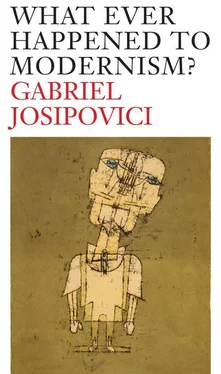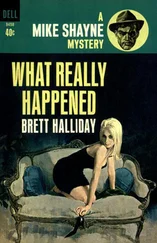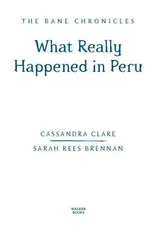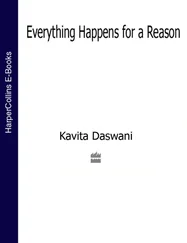Kohlhaas swallowing the piece of paper with his enemy's fate inscribed upon it is Modernism's answer to the Victorian novel. Michael Kohlhaas was published in 1810.
We are now in a position to understand a little better the nature of the anxieties that gripped the writers of our opening examples. What is afflicting Mallarmé, Hofmannstahl, Kafka and Beckett is the sense that they feel impelled to write, this being the only way they know to be true to their own natures, yet at the same time they find that in doing so they are being false to the world — imposing a shape on it and giving it a meaning which it doesn't have — and thus, ultimately, being false to themselves. Their works feel like an interference with the world, as guilt-inducing as the boy's presence in the nut-grove in Wordsworth's poem: lacking proper authority they have strayed into a place where they should not be. Going back to the world of genres is not an option, any more than is a return to the world of the ancien régime . Hence Kafka's horrified confession to Brod: ‘Literature helps me to live, but wouldn't it be truer to say that it furthers this sort of life?’ and his aphorism: ‘In your quarrel with the world, back the world.’ Hence Beckett's talk of ‘being weary of pretending to be able, of being able … of going a little further along a dreary road’. Hence the remark of Adrian Leverkühn, Mann's composer-hero: ‘Why must it seem to me as if almost all, no all the means and contrivances of art are good for parody only ?’ In a world of geniuses but not apostles the very idea of a ‘genius’ has become nothing more than a sick joke.
The remarks of Kierkegaard and Sartre help explain why so many Modernist writers have been at pains to stress that their fictions are only fictions, not reality. Not in order to play games with the reader or to deny the reality of the world, as uncomprehending critics charge them, but, on the contrary, out of a profound sense that they will only be able to speak the truth about the world if the bad faith of the novel, its inevitable production of plot and meaning, is acknowledged and, somehow, ‘placed’.
Here is Borges, for instance, on tigers: ‘Never can my dreams engender the beast I long for’, he writes. ‘The tiger indeed appears, but stuffed or flimsy, or with impure variations of shape, or of an implausible size, or all too fleeting, or with a touch of the dog or the bird.’ In the poem he devotes to the subject he ends: ‘I go on/ Seeking through the afternoon time/ The other tiger, that which is not in verse.’ ‘To find the conclusion’, said Kierkegaard, ‘it is necessary first of all to observe that it is lacking, and then in turn to feel quite vividly the lack.’
Hamm, in Beckett's Endgame , is terrified by the sense that something nameless ‘is taking its course’, feels that ‘something [is] dripping in my head … Splash, splash, always on the same spot.’ ‘Perhaps it's a little vein’, he thinks. ‘A little artery.’ Then he pulls himself together: ‘Enough of that, it's story time, where was I?’ He ponders, then proceeds: ‘The man came crawling towards me, on his belly. Pale, wonderfully pale and thin, he seemed on the point of — No, I've done that bit.’ He resumes: ‘I calmly filled my pipe — the meerschaum, lit it with … let us say a vesta, drew a few puffs.’ But he can't go on with this farce, screams ‘Aah’ and berates himself: ‘Well, what is it you want?’ But nobody answers him and he has no option but to proceed: ‘It was an extraordinarily bitter day, I remember, zero by the thermometer …’ Later he tries out other versions: ‘It was a glorious bright day, I remember, fifty by the heliometer …’ and ‘It was an exceedingly dry day, I remember, zero by the hygrometer. Ideal weather, for my lumbago …’ ‘I remember’ is a sick joke, as much of an invention as the weather. Hamm remembers nothing, he only seeks through story-telling to understand what it is that is taking place. Story-telling, though, only seems to take him further and further away from any understanding of what it is that he really wants . What had seemed designed to help in the end only hinders.
As Kierkegaard understood, what is , the ‘something’ taking its course, belongs to a different order from what can be imagined . That is his perpetual gripe against Hegel, that he blurs the boundaries between imagination and reality to the detriment of both. ‘Actuality cannot be conceived’, he writes in his notebook.
To conceive something is to dissolve actuality into possibility — but then it is impossible to conceive it, because conceiving something is transforming into possibility and so not holding on to it as actuality … But there's this deplorable confusion in that modern times have incorporated ‘actuality’ into logic and then, in distraction, forgotten that ‘actuality’ in logic is still only a ‘thought actuality’, i.e. possibility.
Not just in logic, not just in Hegel, but of course in the novel itself, the ‘modern’ form par excellence . That is what Beckett struggled with all his life. He dramatises it memorably in the best of his early stories, ‘Dante and the Lobster’. Belaqua, the Dantesque hero of these stories, has, on his aunt's instructions, bought a lobster for her to cook for their dinner together. He watches in horror as she prepares to drop it into the boiling water. ‘But it's not dead’, he protests. ‘You can't boil it like that.’ She looks at him in astonishment:
‘Have sense,’ she said sharply, ‘lobsters are always boiled alive. They must be.’ She caught up the lobster and laid it on its back. It trembled. ‘They feel nothing,’ she said.
In the depths of the sea it had crept into the cruel pot. For hours, in the midst of its enemies, it had breathed secretly … Now it was going alive into the scalding water. It had to. Take into the air my quiet breath.
Belaqua looked at the old parchment of her face, grey in the dim kitchen.
‘You make a fuss,’ she said angrily, ‘and upset me and then lash into it for your dinner.’
She lifted the lobster clear of the table. It had about thirty seconds to live.
Well, thought Belaqua, it's a quick death, God help us all.
It is not.
Beckett does all he can to put himself (and us) in the lobster's place. But of course he can never quite do so, because when we have finished the story we can put it down and turn to something else. The lobster, on the other hand, can only die, slowly. Is Belaqua, who senses this yet does nothing about it, more to be admired than his aunt? In a way, yes, in another, no. He is the archetypal liberal at whom every publisher targets a new book about the Holocaust or the Rwandan massacres or some other horror of our time. Beckett is sympathetic to him but is nevertheless appalled by this, and caps Belaqua's attempt to comfort himself with the thought that it's a quick death with the simple, emphatic phrase, delivered with all the authority he can muster, and knowing that it will acquire whatever authority a story can give by being placed at the very end: ‘It is not.’ But the phrase is of course still part of the story. Which means that, in Kierkegaard's formulation, we can imagine but not live it. It can make us imagine the lobster's agony, but by that very token we cannot quite imagine it. Even when a story is about the limits of the imagination, it is still calling on us to imagine. It has no other recourse. You can never succeed, for each time you think you have succeeded, each time the reader says: ‘Ah, I see’, you have failed. This was the rock against which Kierkegaard banged his head, again and again, as of course did Beckett, and Borges.
And that is why Modernists look with horror at the proliferation in modern culture of both fantasy and realism — both Tolkien and Graham Greene, as it were, both Philip Pullman and V.S. Naipaul. Not out of a Puritan disdain for the imagination or the craft of letters, but out of respect for the world. The two greatest post-war English novelists, William Golding and Muriel Spark, wrote out of this tension, and two of their finest works, Pincher Martin and The Hothouse by the East River , explore the issue head-on. Both novels deal with the desire we all have to cling to what we know and love best — ourselves. This deeply rooted and unconscious need to deny the fact of death, to deny our lack of control over our own lives, is equated in both works with the making of fiction.
Читать дальше












